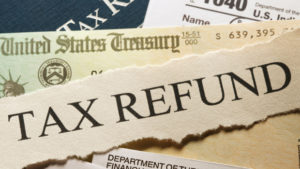Tax Returns and Bankruptcy

There are a few factors that influence whether or not you will be able to keep your refund in a Chapter 7 bankruptcy filing – your exemptions, the time you file, and the amount of your refund.
As soon as you file for Chapter 7, essentially all of your assets become property of the bankruptcy – including any tax refunds as of your filing date. In other words, unless your Chapter 7 specifically exempts tax refunds, a trustee can take it and distribute it to creditors.
In order to protect your refund, you’ll have to be able to exempt it. The best way to find out if this is possible is by speaking with a Milwaukee bankruptcy lawyer like Michael Burr of Burr Law Offices prior to filing. By working with Attorney Burr, you will likely be able to be better protected in your case.
If you aren’t able to exempt your refund, the next step would be to look at the timing of your filing. This option will only be viable for those that aren’t rushed and have more flexibility for filing. You simply can wait until after you receive your refund and spend it. Do remember, however, purchasing an asset will still put you at risk for surrendering said purchase after filing. The best way to spend your refund is on living expenses – food, gas, rent, etc.
If you’re considering filing for Chapter 7 bankruptcy, or are having problems paying taxes, contact Milwaukee bankruptcy lawyer Michael Burr. With over 20 years of bankruptcy experience, Attorney Burr will help you have the most successful bankruptcy possible.


